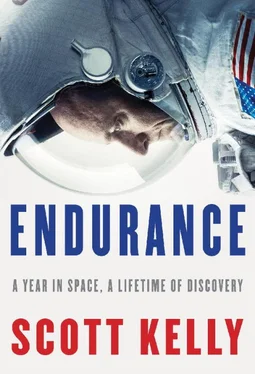When I arrived on campus that January wearing the most formal thing I owned—khaki pants and a polo shirt—I was greeted by the dean of admissions himself, in full military dress uniform. I’d never dealt with a uniformed officer before (aside from cops, of course). He invited me into his large office that seemed to be constructed almost entirely from wood—wood furniture, wood bookshelves, wood chairs, model ships, and other nautical memorabilia all over the walls. A tarnished brass ship’s engine order telegraph stood alone in the far corner of the room. The dean looked me in the eye and asked me why I wanted to transfer there.
“Well, sir, I want to become a commissioned officer in the Navy. My goal is to fly fighter planes and land on aircraft carriers.”
In my mind, this was such a clear and compelling goal. But the man’s eyes glazed over as I spoke, and he kept looking at his watch, as if he was already thinking about his next appointment, or maybe about what he was going to have for lunch. He kept looking behind me, toward the window, rather than meeting my eyes. When I was done talking, he cleared his throat and closed the folder on his desk that contained my sad credentials.
“Look,” he said, and sighed.
Not a good sign.
“Your high school grades are pretty terrible. Your SAT scores are below the average for our incoming freshmen. Your grades in your first semester of college are no better than high school. There’s just nothing here to indicate that you would be successful in the very challenging program here.”
“I intend to improve my grades now,” I explained. “I know I can do it. And my SAT—I didn’t even study for it. I think I could do much better if I tried taking it again.”
“Well, your two scores would have to be averaged,” he explained, “so you’d need a perfect score in order to bring your new score up to our average. And even that wouldn’t be enough to balance out your grades.”
This wasn’t quite how I had expected this conversation to go.
I told him about growing up as the son of two cops, about my parents’ deplorable boats, about working as an EMT. I told him about reading The Right Stuff and realizing what I wanted to do, finally finding a clear direction in life. I told him about the jets and the aircraft carrier and the risk and the possibility of achieving something important. I told him I thought it could all start at Kings Point. I asked him what I could do to change his answer.
He just shook his head. “I’m sorry, son,” he said. “There’s just no way with this record. You wouldn’t succeed here.” He stood, thanked me for coming in, and explained that it was only in deference to my brother, who was doing extremely well, that he had agreed to see me. He shook my hand and showed me the door.
Back outside in the bright sun, I blinked and looked around, stunned. I wasn’t going to join my brother here, and I wasn’t going to get started on the next step of my life. I was closer to tears than I’d been since I could remember.
I realize now that that dean of admissions must have spent a lot of his time listening to young people describe lofty goals that they had neither the talent nor drive to achieve, and to him I must have seemed no different from them. Maybe I wasn’t. I can put myself in his position now, but at the time his indifference was devastating. Kings Point had seemed to be my only possibility: I could only assume I would meet rejection anywhere else I tried. Of course I couldn’t get into Annapolis. I didn’t have a plan B. Meanwhile, other people my age with the same goals were surging forward, and I would be years behind them. It seemed like it would take me a long time just to get to the starting gate—maybe so long the Navy wouldn’t want me anymore. I knew there was an age limit for being commissioned into the Navy.
Everything else I’d done in my life up to this point, like working as an EMT, had been choices that had played to my strengths and hadn’t particularly challenged my weaknesses. This new goal was going to expose every weakness I had.
—
IN MY SECOND SEMESTER at UMBC, I signed up for more challenging classes and tried to apply myself for the first time in my life. I remember walking into class on the first day of precalculus—more or less the same material as the trigonometry class Mr. Tarnoff had begged me not to drop in high school—and thinking, This is it. If I can’t show what I’m capable of in this class, I’m not going to get the chance to do much more. During my first semester I’d taken the easiest math class, algebra, in order to satisfy a requirement, and I’d barely passed it. Now I was in a class that would build on the knowledge I had already failed to absorb, and I had to do much, much better.
After the first class, I sat down to do the homework, feeling the pressure of everything I had now decided to do. I had to force myself to stay in my chair. I kept thinking of something else I needed to do in another room, a reason to walk down the hall of my dorm. I needed to sharpen my pencil. I needed a glass of water. I stayed in the chair anyway. I forced myself to read through the chapter, over and over. It still didn’t make a lot of sense because a lot of the terms were ones I was supposed to have learned in high school and hadn’t. I forced myself to work through the homework problems, and while I was pretty sure I had gotten the right answers to the easier ones, the harder questions were still pretty fuzzy. It was late at night by the time I was done, and I tried not to reflect on the fact that everyone else in my class had probably ripped through the homework in fifteen minutes. I tried to focus on the fact that I had set myself a goal—to read this chapter, to do the problems—and I had done that. I turned out the light feeling like I might finally be able to turn things around.
A few weeks later, I was doing my homework and realized that it was getting a little easier. It was still a lot like banging my head against a wall, but some of the material that I had struggled with the week before now seemed to make a little more sense. The whole process of learning became a little less painful, a little more reliable with each problem I slogged through. It was still a mighty struggle to stay in the chair, and I only got a B– in the class. Still, that B– was one of the major achievements of my life thus far. I had decided to learn something hard, and I had learned it.
Meanwhile, I applied to transfer to two schools: Rutgers University and the State University of New York Maritime College. Both were close by and both offered me the possibility of becoming a commissioned officer in the Navy.
SUNY Maritime is a small military-oriented school in the Bronx, established to train ships’ officers in the maritime industry. It was the first maritime college in the country, built on Fort Schuyler (named for General Philip Schuyler, Alexander Hamilton’s father-in-law). The fort was designed to defend Manhattan from naval attack in the aftermath of the War of 1812. I didn’t know any of this when I applied there—it was just one of very few options that seemed open to me. When the school made me an offer of admission, I immediately accepted. I had just barely made the cutoff for the minimum GPA.
I didn’t know it at the time, but I’d been rejected by Rutgers. When the letter came in the mail, my parents had opened it, then thrown it away without telling me. They couldn’t bear to disappoint me. They kept this secret for years, until long after I’d been selected as an astronaut.
I made my way to Fort Schuyler in the summer of 1983. I knew I would start the year with a two-week indoctrination program, but I had only a hazy idea based on movies of what this would be like: getting my head shaved, upperclassmen shouting in my face, forced marches, having to clean things like shoes and belt buckles over and over. As it turned out, all of these ideas were entirely accurate.
Читать дальше












